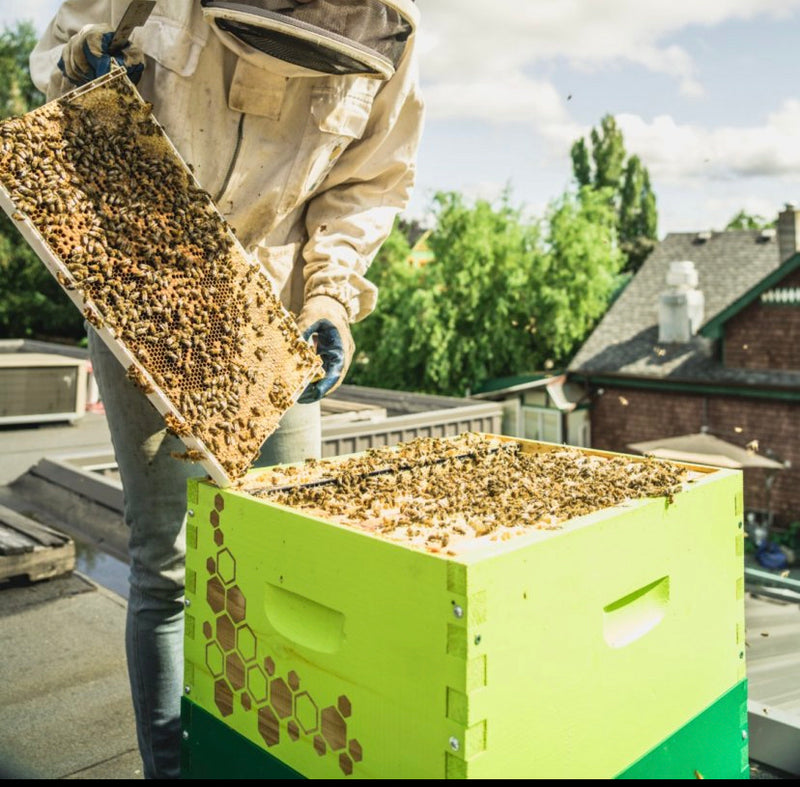
A glimpse of sunshine during the wintering months is a friendly reminder that spring is just around the corner. In dreaming up garden ideas and warm weather adventures, you may also have a reoccurring question: is this the year I start beekeeping?
If this is the year you start beekeeping, you're going to need hive equipment, live bees and educational resources. We will post a blog about equipment and live bees so we will focus on educational resources, starting with joining your local bee club!
Local Bee Clubs:
Bee clubs are organizations focused on supporting the local beekeeping community. This wonderful resource is available throughout the entire beekeeping season- which is very, very helpful! Bee clubs are a place where you have the opportunity to meet other beekeepers, learn from guest speakers, ask questions and listen to discussions about the seasonal steps of beekeeping. Bee club meetings are typically held once a month either online or in person. Some bee clubs have rental equipment such as extractors or observation hives, that you can access throughout the year. To find a bee club in your region follow the link: https://bchoneyproducers.ca/info-for-beekeepers/bc-bee-clubs/.
Apiary Inspectors:
Apiary inspectors are employed by the government to help prevent the spread of apiary diseases. If you suspect your colony has any pest or disease, calling your local apiary inspector is important! Apiary inspectors (or bee inspectors) can schedule a hive inspection (at your apiary) and help provide guidance on disease/pest management. This service is free! Apiary inspectors are also important for selling local bees or used equipment. To find out who the apiary inspector is for your region, follow the link: https://www2.gov.bc.ca/gov/content/industry/agriculture-seafood/animals-and-crops/animal-production/bees/apiculturist-inspectors
BCHPA:
The BC Honey Producers Association was established in 1920. It is an organization for all beekeepers in BC. It is a hub for beekeeping education and initiatives. You can sign up to be a member via the website below. The membership gives you access to educational material, resources and a monthly magazine packed full of information.
Local Bee Shop:
I suggest that you connect with a local bee supply store! Bee stores are usually full of information, up to date products and typically a place where you can order live bees! I encourage you to connect with local beekeepers and find a store near you- support local!
https://bchoneyproducers.ca/info-for-beekeepers/suppliers-buyers-sellers-index/suppliers/
Books- there are so many wonderful books, but here are a few:
- Queen Spotting Book by Hilary Kearney
- Backyard Beekeeper by Kim Flottum
- Beekeeping for Dummies by Howland Blackiston
- Honeybee Pests & Disease Published by Canadian Association of Professional Apiculturists
Social media resources:
- Facebook has lots of beekeeping groups, some nation wide and some as local as your specific community. If you are on Vancouver Island, the VI Beekeepers group on Facebook is a great way to connect with local beekeepers.
Why is it important to connect with a network of beekeepers? Well, as you learn to manage honeybee colonies, you will be filled with questions and may find it helpful connecting with beekeepers that may have dealt with similar issues in their beekeeping history. They may be able to suggest hive management techniques or help alert you to upcoming seasonal needs of your hive. At Home Grown Bee, we know we've found it incredibly helpful connecting with our beekeeping community throughout the seasons!
